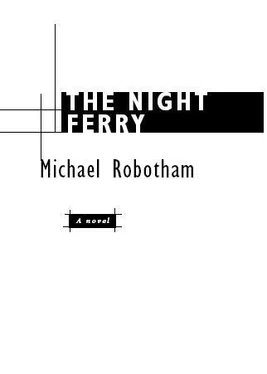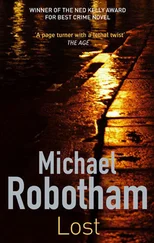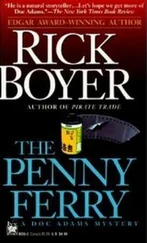My dreams are real. As real as dreams can be. I hear babies crying and mothers singing to them. I am being chased by people. It is the same dream as always but I never know who they are. And I wake at the same moment, as I’m falling.
I call Ruiz again. He picks up on the second ring. The man never sleeps.
“Can you come and fetch me?”
He doesn’t ask why. He puts down the phone and I imagine him getting dressed and getting in his car and driving through the countryside.
He is thirty years older than me. He has been married three times and has a private life with more ordnance than a live firing range but I know and trust him more than anyone else.
I know what I’m going to do. Up until now I have been trying to imagine Cate’s situation—the places she went to, what she tried to hide—but there is no point in calling the same phone numbers or mentally piecing together her movements. I have to follow her footsteps, to catch up.
I am going to Amsterdam to find Samira. I look at the clock. Not tomorrow. Today.
Two hours later I open the door to Ruiz. Sometimes I wonder if he knows my thoughts or if he’s the one who puts them in my mind in the first place and then reads them like counting cards in a poker game.
“We should go to Amsterdam,” he says.
“Yes.”
The bitterest tears shed over graves are for words left unsaid and deeds left undone.—HARRIET BEECHER STOWE
In our second year at university in London Cate missed a period and thought she was pregnant. We were synchronized—same time, same place, same moods. I can’t remember which of her bad boyfriends had breached her defenses, but I remember her reaction clearly enough. Panic.
We did a home pregnancy test and then another. I went with her to the family planning clinic, a horrible green building in Greenwich not far from the observatory. Where time began, life ended.
The nurse asked Cate some questions and told her to go home and wait another seven days. Apparently, the most common reason for a false negative is testing too early.
Her period arrived.
“I might have been pregnant and miscarried,” she said afterward. “Perhaps if I had wanted it more.”
Later, apropos of nothing, she asked, “What do they do with them?”
“With what?”
“With the aborted babies.”
“They don’t call them babies. And I guess they get rid of them.”
“Get rid of them?”
“I don’t know, OK?”
I wonder if a scare such as this, a near miss, came back to haunt her during the years of trying to fall pregnant. Did she tell Felix? Did she wonder if God was punishing her for not loving the first one enough?
I remember the name of the bad boyfriend. We called him Handsome Barry. He was a Canadian ski instructor with a year-round suntan and incredibly white teeth. What is it about male ski instructors? They take on this God-like aura in the mountains as if the rarefied air makes them look more handsome or (more likely) women less discerning.
We were working during the Christmas break at a ski lodge in the French Alps in the shadow of Mont Blanc (which didn’t ever throw a shadow since the clouds never lifted).
“Have you ever seen a Sikh ski?” I asked Cate.
“You can be the first,” she insisted.
We shared a room in Cell Block H, the nickname for the staff quarters. I worked as a chambermaid five days a week, from six in the morning until mid-afternoon. I rarely saw Cate who worked nights at a bar. She practiced her Russian accent by pretending to be Natalia Radzinsky, the daughter of a countess.
“Where on earth did you sleep with Barry?” I asked.
“I borrowed your house key. We used one of the guest suites.”
“You did what?”
“Oh, don’t worry. I put down a towel.”
She seemed more interested in my love life. “When are you going to lose your virginity?”
“When I’m ready.”
“Who are you waiting for?”
I told her “Mr. Right,” when really I meant “Mr. Considerate” or “Mr. Worthy” or any “mister” who wanted me enough.
Maybe I was my mother’s daughter after all. She was already trying to find me a husband—my cousin Anwar, who was reading philosophy at Bristol University. Tall and thin with large brown eyes and little wire spectacles, Anwar had great taste in clothes and liked Judy Garland records. He ran off with a boy from the university bookshop, although my mother still won’t accept that he’s gay.
Ruiz has scarcely said a word since our flight left Heathrow. His silences can be so eloquent.
I told him that he didn’t have to come. “You’re retired.”
“True, but I’m not dead,” he replied. The faintest of smiles wrinkled the corners of his eyes.
It’s amazing how little I know about him after six years. He has children—twins—but doesn’t talk about them. His mother is in a retirement home. His stepfather is dead. I don’t know about his real father, who’s never come up in conversation.
I have never met anyone as self-sufficient as Ruiz. He doesn’t appear to hunger for human contact or need anyone. You take those survivor shows on TV where people are separated into competing tribes and try to win “immunity.” Ruiz would be a tribe of one—all on his own. And the grumpy old bugger would come out on top every time.
Amsterdam. It makes me think of soft drugs, sanctioned prostitution and wooden shoes. This will be my first visit. Ruiz is also a “Dutch virgin” (his term, not mine). He has already given me his thumbnail appraisal of the Dutch. “Excellent lager, a few half-decent footballers and the cheese with the red wax.”
“The Dutch are very polite,” I offered.
“They’re probably the nicest people in the world,” he agreed. “They’re so amenable that they legalized prostitution and marijuana rather than say no to anyone.”
For all his Gypsy blood Ruiz has never been a wanderer. His only foreign holiday was to Italy. He is a creature of habit—warm beer, stodgy food and rugby—and his xenophobia is always worse the farther he gets from home.
We managed to get bulkhead seats which means I can take off my shoes and prop my feet against the wall, showing off my pink-and-white-striped socks. The seat between us is empty. I’ve claimed it with my book, my bottle of water and my headphones. Possession is nine-tenths of the law.
Outside the window the Dutch landscape is like an old snooker table, patched with different squares of felt. There are cute farmhouses, cute windmills and occasional villages. This whole below-sea-level thing is quite strange. Even the bridges would be underwater if the dikes ever failed. But the Dutch are so good at reclaiming land that they’ll probably fill in the North Sea one day and the M11 will stretch all the way to Moscow.
On the journey from the airport our taxi driver seems to get lost and drives us in circles, crossing the same canals and the same bridges. The only clue we have to Cate’s movements is the tourist map of central Amsterdam and a circle drawn around the Red Tulip Hotel.
The desk clerk greets us with a wide smile. She is in her mid-twenties, big boned and a pound or two away from being overweight. Behind her is a notice board with brochures advertising canal boat cruises, bicycle tours, and day trips to a tulip farm.
I slide a photograph of Cate across the check-in counter. “Have you seen her?”
She looks hard. Cate is worth a long look. The woman doesn’t recognize her.
“You could ask some of the other staff,” she says.
A porter is loading our cases onto a trolley. In his fifties, he’s wearing a red waistcoat stretched tight over a white shirt and a paunch, putting the buttons under pressure.
Читать дальше












